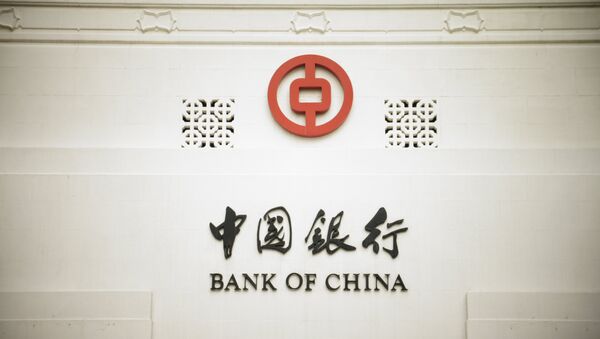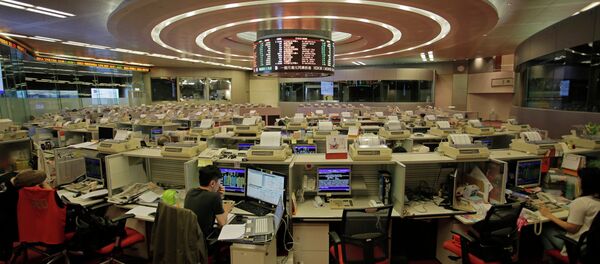Kristian Rouz — In an attempt to improve the financial situation in investment-starved mainland China, the Communist nation’s regulators took another step towards greater economic openness by allowing foreign central banks, wealth funds and international financial organizations to participate in the mainland’s national interbank bond market.
As provided by the recent regulation announced Tuesday, the aforementioned foreign, international and global financial institutions will no longer be required to negotiate a preliminary administrative approval to buy and sell fixed income securities (bonds), trade interest rate swaps and conclude repurchase deals. Beijing consciously withdrew from these sorts of financial market operations, hoping less administrative involvement would attract more money into the system.
However, the parties involved in these operations, will still be required to fill out certain deal registration forms, as a measure of account and prevention of corruption, which is rife in China.
By allowing foreign central banks to swap money directly with the Chinese banks, The People’s Bank of China (PBOC) is hoping to promote the use of the renminbi in international settlements, which is, in turn, just a step in the global strategy. Mainland China wants the renminbi to be included in the International Monetary Fund’s (IMF) pool of reserve currencies, along with the dollar, the sterling, the euro, the yen and the franc.
This is, nonetheless, an unlikely scenario even in the long-term, for as long as the renminbi’s FX rate remains subject to administrative manipulation (it is artificially undervalued), such a currency may not be considered a reserve one no matter what.
As for the bonds, the mainland is already a heavily-indebted nation, with its debt-to-GDP ratio standing at 280% and increasing. Local governments are expected to release some $451 bln worth of bonds this year, all of which are ultimately guaranteed by Beijing. In order to make the debt burden easier, China is planning to conduct debt-swap operations, converting the expensive debt due this year into the cheaper regional bonds.
Also, as more foreigners are likely to buy into mainland China’s debt, the nation is planning to become one of the world’s most competitive high-risk bond markets. According to estimates by the American bank JPMorgan Chase & Co., the total volume of foreign-held Chinese debt would reach $175 bln by early 2016 (compared to the current $118 bln).
Simultaneously, China is hoping to increase its domestic bond holdings to a total of $500 bln in five years. That said, China is likely to surpass the likes of Brazil as the world’s most promising (and largest) high-risk fixed income market.




